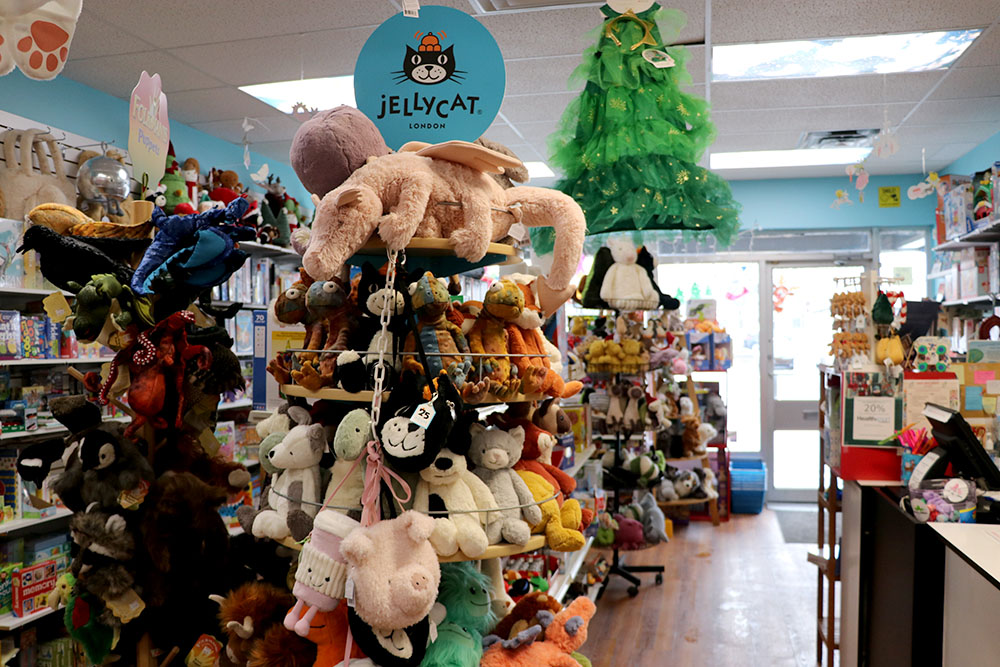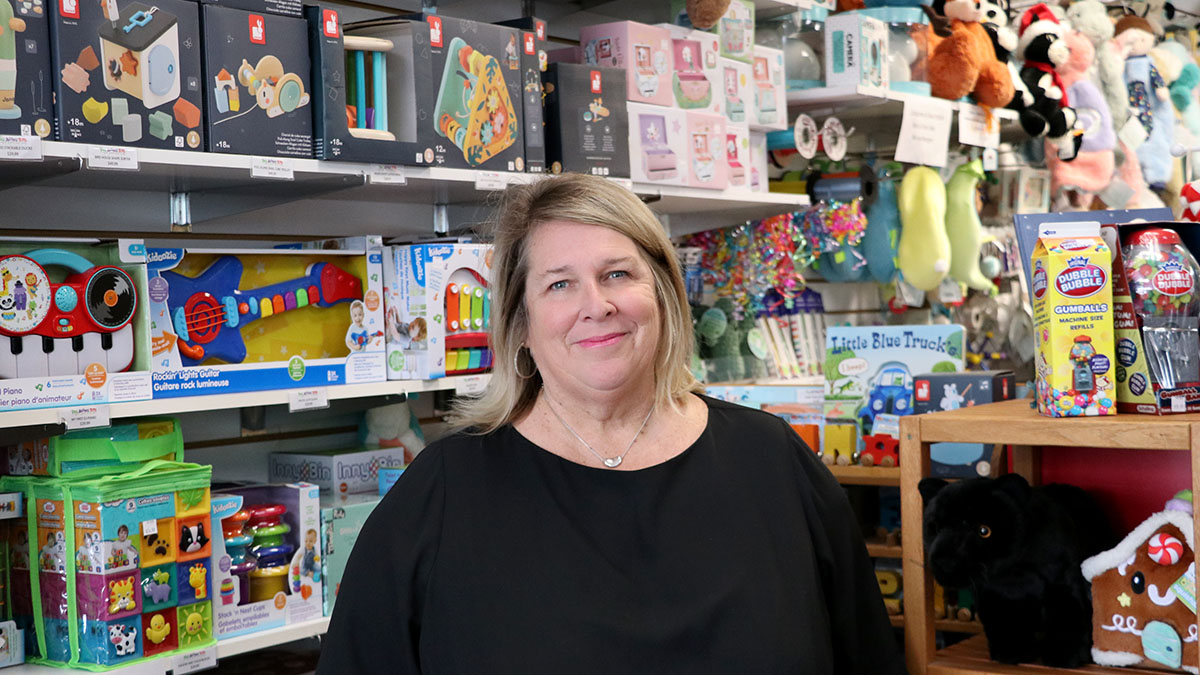The GST ‘holiday’ that is about to kick in might not be solid economic policy and it may be too late for those who do their holiday shopping early, but one local business owner welcomes the move — mostly.
“I think the incentive is a fabulous idea, especially in my industry because at Christmas parents, grandparents, aunts and uncles like to shop for kids,” said Patti Taggart, owner of the small toy store Tag Along Toys located in the Blue Heron Mall on Bank Street.
Since 2001 Taggart has been selling “unique, fun and educational toys — more fun than educational.” In her store, she carries everything from board games, puzzles, crafts, baby toys and a variety of Jellycat plush toys which she says are the “hottest items” on the market. In fact, everything in her store qualifies for the tax exemption.
The federal tax holiday runs from Dec. 14 to Feb. 15, during which time Canadians won’t be required to pay sales taxes on items such as prepared food, children’s clothes and toys, books, certain alcoholic beverages and even natural or artificial Christmas trees.

While she benefits, Taggart is sympathetic for those stores where determining which items are exempt is more complicated.
“I feel like [the tax exemption] just happened out of nowhere and there wasn’t a whole lot of time to prep for it.”
Taggart also said the timing of the tax break is not ideal, because her customers usually do their holiday shopping before Dec. 14. She said her store is usually bustling this time of year but instead people are window shopping.
“People are actually calling our store and asking us to hold things until Dec. 14, which we cannot do,” she said. “We’re even getting questions of ‘If I buy it now, can I come back after the 14th and get the refund?’ We can’t do that as a small business.”
James Davies, an economics professor at Western University and an expert in distribution of wealth and tax policy, said he also feels the timing of the measure is problematic for customers.
“I don’t know about you, but I buy my Christmas tree before Dec. 14and I try to get my Christmas shopping done early,” Davies said. “Dec. 14 is kind of late.”
However, since the exemption will last until mid-February, Davies said it will likely bring more customers into businesses when sales are usually low.
Davies added that there are also compliances cost and operation challenges that businesses will have to deal with, including costs associated with adjusting point of sale systems.
While Taggart says the tax exemptions will likely strain some small businesses, she hopes it helps shoppers this time of year.
“Giving them that boost is an excellent idea, especially the way the economy has been lately,” she said.
With nearly half of Canadians reporting rising prices are impacting their ability to afford everyday expenses, the legislation aims to “give Canadians more money in their pockets” over the holiday season.
Jay Goldberg, the Ontario director of the Canadian Taxpayers Federation, said he is glad to see the federal government finally deliver some relief to Canadians who are struggling to pay their bills.
“It’s good to finally see the government recognize that affordability means leaving more money in taxpayers’ pockets,” Goldberg said.
However, Goldberg said he is concerned that the GST/HST exemption is only for two months, arguing that a tax break on “essentials” should be made permanent.
“This is a very temporary measure,” Goldberg said. “I think it’s really important to recognize that people are hurting. This is not a short-term issue, and this is not something that’s going to be solved with a two-month GST holiday.”
Goldberg said as a parent of two, he knows first-hand how hard it can be to afford diapers, car seats and children’s clothing.
“Diapers are not an option. Clothing, when they’re getting bigger, that’s not optional,” he said. “One really has to question whether there should be sales tax on them at all because they’re such essential goods.”
Robin Boadway, an emeritus economics professor at Queen’s University, said while the GST/HST holiday exemption is meant to give relief to low-income individuals struggling with high costs of living, the exemption is not well targeted since it applies to everyone buying goods this holiday season.
“There are other ways that we could address the problem faced by low-income people without giving temporary things that are going to disappear and they’re going to be faced with the same problem in two months’ time,” said the tax theory and policy specialist.
Boadway suggests the government should increase the GST/HST credit that people of low or modest incomes receive instead.
“This is something that would be quite advantageous to low-income people because this HST credit is contingent on your income,” he said.
With the next federal election approaching, Boadway said the motivation behind the policy is more about politics than economics.
“I don’t think any economists would advocate this as a good policy for addressing the problems of inequality. It’s clearly got a political dimension and it’s been used quite often in the past by different governments,” Boadway said.
“You could argue that there might have been some necessity in doing this in the short term because of the cost of living, but the government kind of left it to the last minute.”
Despite the need for more long-term measures to help Canadians with the cost of living, Goldberg said he believes most consumers and business will welcome the tax exemption this holiday season.
“Obviously, this does not go far enough,” Goldberg said. “But I think it’s a recognition on the part of the Trudeau government that affordability and leaving more money in people’s pockets is the big concern of voters and taxpayers today.”




